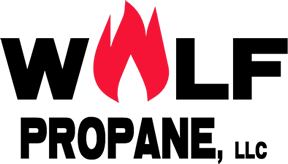Homeowners can prepare for cold weather by taking simple energy efficiency measures that will reduce energy consumption and heating bills.
Energy Saving Tips
1. Inspect and tune-up your residential heating system regularly with a qualified technician. This includes checking the airflow over the coil, checking that the combustion process and heat exchanger are operating safely, and ensuring proper airflow to each room. A heating system that runs well is more efficient and will save you money.
2. Clean your furnace filter monthly and replace them regularly. Clean filters will increase efficiency.
3. Invest in a programmable furnace thermostat that lowers your home's temperature when you are not at home. You can cut annual heating bills by as much as 10 percent per year by turning your thermostat back 10-15 percent for eight hours per day.
4. Protect against drafts by caulking and weather-stripping around windows, doors, and other openings such as ducts, fans, and vents.
5. Use a heavy-duty, clear plastic sheet on a frame or tape clear plastic film to the inside of your window frames. Make sure the plastic is sealed tightly to the frame to help reduce infiltration.
6. Install tight-fitting, insulating drapes or shades on windows that feel drafty after weatherizing.
7. Use sunlight to your advantage. Open curtains during the day to allow the sun to naturally heat your home.
8. When using the oven, resist the temptation to open the door to check on a dish's progress. Every time you do, the temperature inside is reduced by as much as 25 degrees, forcing it to work even harder (and use more energy) to get back to the proper cooking temperature.
9. Keep your fireplace damper closed unless a fire is burning. Keeping the damper open is like keeping a window wide open; it lets warm air go right up the chimney.
10. Have a technician inspect and confirm that your appliances are running as efficiently as possible, so you can conserve fuel and save money.
11. Reduce energy for water heating. Water heating accounts for roughly 14 to 18 percent of most home utility bills. Turn down your water heater's from the standard 120 degrees to 115 degrees. You could save more than 10 percent on your water heating bill. It the heater is more than five years old a water heater jacket can also save energy.
12. Increase your water heaters efficiency by draining it every six months to remove mineral deposits and sediment.
13. Install flow-restricting showerheads. You can reduce hot water usage by up to 50 percent without affecting shower pressure. Run washing machines, clothes dryers and dishwashers with a full load.
14. Consider switching to a propane water heater. Over time, propane water heaters can cost up to one-third less to operate, and they recover hot water twice as quickly as electric water heaters.
15. Discuss payment plan options with your propane retailer. Many retailers have budget payment plans that will help you spread your projected annual cost of propane over many months, lowering the costs of seasonally higher bills.

